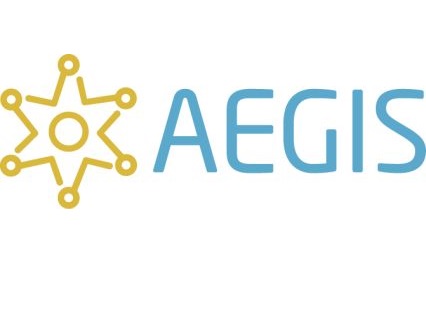Hypertech Energy Labs have been awarded a new R&D contract from the European Commission (Project Acronym: AEGIS) focusing on the the introduction of innovative big data technologies and solutions in critical domain sectors for public safety and personal security. Hypertech Energy Labs constitute a leading member of an international consortium of renowned academic and industrial partners, led by Fraunhofer FOKUS and actively involving GFT Italia and HDI Assicurazioni (Italy), KTH (Sweden), UBITECH (Cyprus), VIF (Austria), NTUA (Greece), EPFL (Switzerland) and Suite5 (United Kingdom).
AEGIS will bring together data owners related to PSPS issues (linked to them directly or indirectly) from various sectors across Europe, indicatively from the public, insurance, automotive, environmental, criminal, juridical, health, agriculture, etc. sectors, as well as from Web 2.0 sources and enable their interrelation and interoperation. AEGIS aims to capitalise on modern technological breakthroughs in the areas of the data driven economy, and roll out a completely new value chain of interrelated data streams coming from diverse sectors and languages. The platform to be delivered and its service will reside on cross data technology innovations and data being delivered in different formats, as well in different states (e.g. structured/unstructured). This data blend will revolutionise the way PSPS organisations and stakeholders from other domains (e.g. insurance companies, etc.) work, showcasing how a huge but at the same time realistic economic, societal and environmental impact can be achieved by introducing a new economy of knowledge principle.
This will be made possible through semantic links, based on agreed schemas that respect and extend where necessary the most commonly used ontologies in each area, and the usage of (or even extension of) data-vocabulary standards used by different sectors. At the same time, data from devices such as car sensors, wearable devices, smartphones, home automation systems, smart city infrastructures and other specific sensor data types that can be leveraged for PSPS services will be identified and a semantically aware structure will be defined in order to allow the homogenisation of sensory information, its efficient processing and its connection to more traditional data sources. AEGIS will develop a central platform to manage data collection, cleaning, semantic annotation and interlinking which will allow 3rd parties to explore, visualise and add data, enforcing the agreed schema and providing the infrastructure to support blockchain-enabled data transactions.
The main outputs of the project will be novel services and applications that allow PSPS-related industries, organisations and stakeholders in general to generate
more factual and evidence-based analytics,
improved decision support models, and
new business services focused on real-time collaboration, knowledge sharing and notifications amongst the key stakeholders, based on both (i) real-time data streams taking into consideration the data and temporal granularity aspects, and (ii) on batch processed data to extract analytics and intelligence to influence strategic mid-term and long-term operations planning.
AEGIS aims to constitute the central node of a dynamic and expanding network of data contributors and consumers. The data services offered by the platform (e.g. integration, storage, semantic enrichment, analytics, visualisation etc.) are envisioned to constitute the main building block that organisations (or coalitions of organisations) will exploit in order both to contribute their own data (further enriching the plethora of “raw materials”) and to consume value added services that will innovate their everyday way of operation. Thus, AEGIS will be a constantly growing pool of cross-sectorial and multi-lingual linked data, offering services to and bringing together organisations of different activity fields and needs, following novel shared economy principle based on data exchange.
In order to achieve the aforementioned target, the whole concept relies not only on technology integration activities that are necessary for the development of the technology offering, but also on actions that will bring domain shareholders together and infuse an open collaboration culture based on shared value creation and intelligence exchange. The latter are considered as the key elements to drive the project’s success and accelerate the market uptake of its results.






